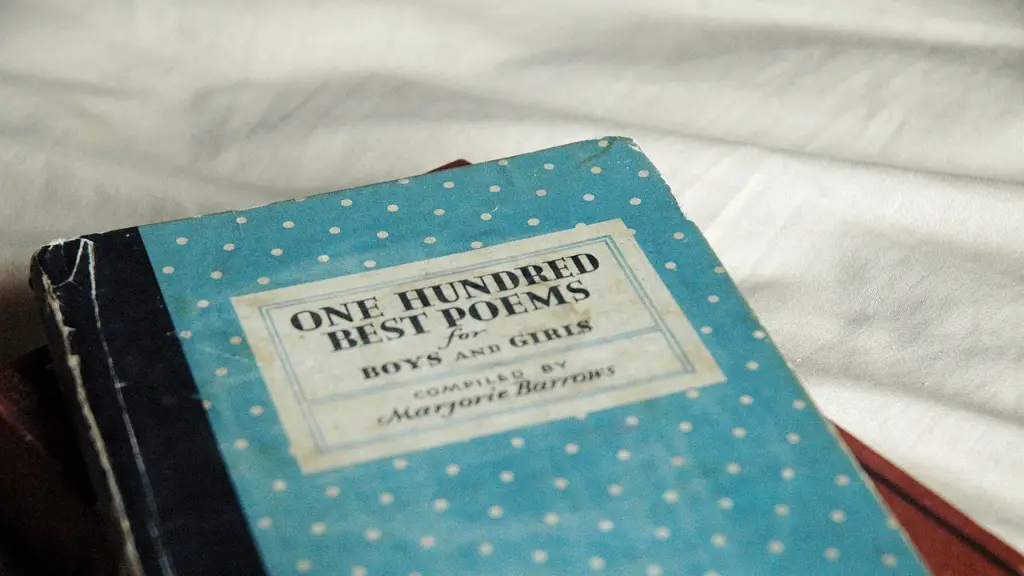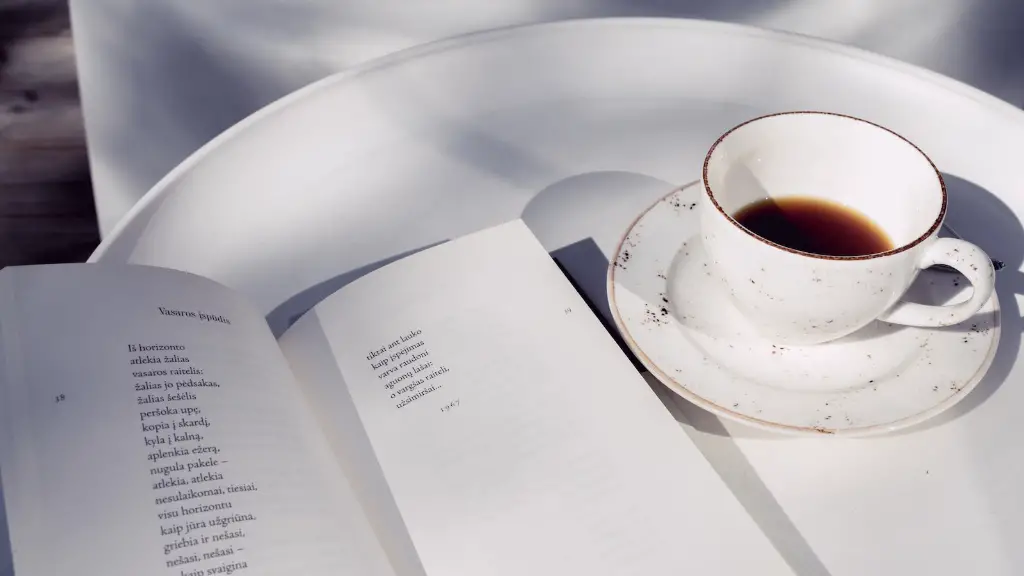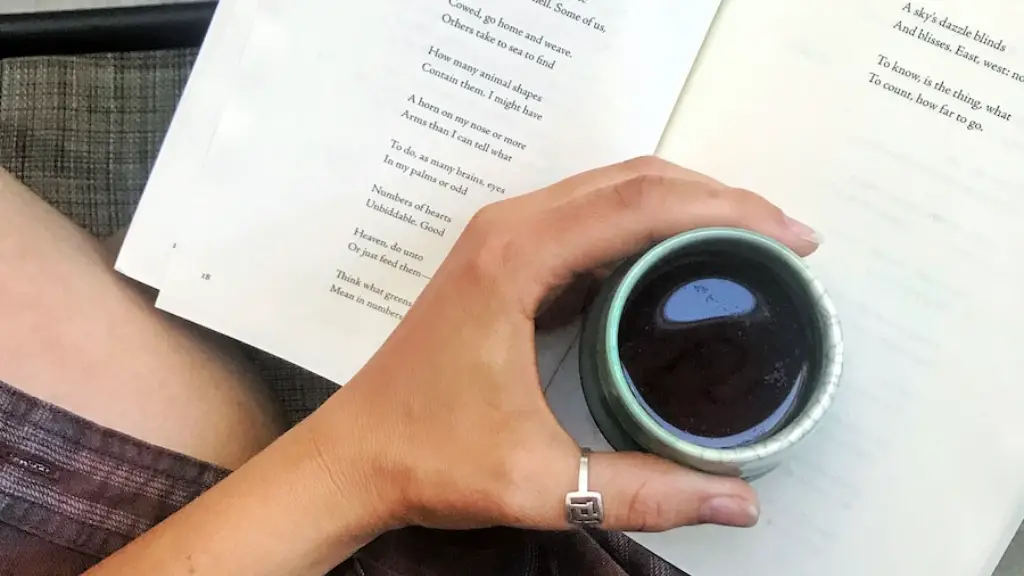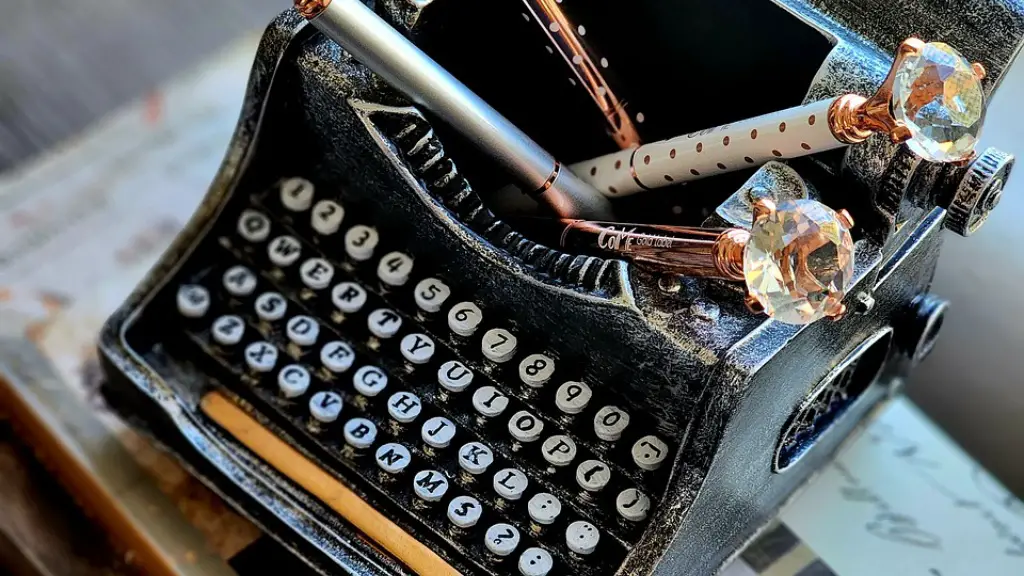The Origins of Poetry
Since the dawn of human communication, poetry has been a part of our lives. It is not known precisely when poetry was first created – some claim it was an instinctive reflex for our ancestors to express their emotions – but we do know that it has been part of our collective and shared identity from time immemorial. Through the ages, poetry has been a vessel of expression, communication, and imagination and has fed into our cultures, with its ancient origins still remaining relevant today.
Like many other forms of language, poetry originated as a means of conveying information and emotion. Poetry has been found in ancient texts, such as the Vedic hymns of India and the book of Psalms. The Epic of Gilgamesh is considered the oldest written piece of literature, and it is in verse. Ancient Greek and Roman poetry also used poetic conventions to communicate stories and mythological figures. Even in antiquity, poetic conventions such as allusion, metaphor, and vernacular were used to convey complex ideas in a more impactful way.
The primary purpose of poetry is to evoke emotions and create connections between the reader and the text. Poetry is an expression of the human condition, allowing us to interpret and understand our lives through metaphor, allusion and imagery. Contemporary poetry reflects the views and feelings of the modern world. It often contains imagery to create vivid pictures in the reader’s mind, as well as metaphor to explore themes and emotions. Poetry is also used to express ideas, thoughts, and feelings at a particularly meaningful level.
Poetry can also be used as a tool for protest, protest literature being an example of how powerful poetry can be as a force for expression and change. Many of the most iconic poems, such as W. H. Auden’s ‘Funeral Blues’, focus on protest and the power of poetry to fight for social justice. Moreover, this power has been harnessed by poets from a wide range of backgrounds and perspectives, from civil rights activists such as Maya Angelou to contemporary poets such as Rumi.
It can be difficult to accurately understand and analyse why poetry was created, but there are several interpretations that have been suggested by scholars and linguists. Perhaps it was a response to the needs and fears of our ancestors, a means of utilizing figurative language to more articulately express their profound emotions, a way of developing and structuring elaborate stories, or simply as a form of self-expression. In any case, it is clear that the seeds of poetry lie deep within our emotional and intellectual consciousness.
Today, poetry is still widely used in literature and popular culture. Whether it is used as an integral part of a language course or to convey feelings and emotions, it is essential to how we communicate. With its combination of expression, poignancy, vivid imagery, and creative vehicles of communication, poetry can be used to reach and inspire people all over the world.
The Impact of Poetry on Society
The impact of poetry on society is both profound and far-reaching, with its powerful ability to evoke emotions, wake up consciences, and express truths that language alone cannot convey. Poetry can function as a political tool, allowing speakers and poets to raise awareness about difficult and unjust issues and reach those with unkind leaders, reluctant to heed their people’s needs.
Poetry can also be an effective tool in the classroom. In teaching poetry, we help to foster an appreciation for creativity and language, while also teaching students the basics of poetic structure and developing literacy skills. This helps to build valuable knowledge and skills which they can bring into the larger world, and learn to think of their life and environment in new ways. Moreover, reading poetry often helps promote discussion and inspire critical thinking, both of which are essential skills for academic success.
Poets often become active participants in social discourse, often making contributions to political, religious, educational, and other civic and moral debates. This influence swells as poetry is capable of conveying universal messages of life, love and justice that transcend language barriers. Furthermore, though poetic language might initially appear foreign to some, it has an incredible capacity to reach people on a deep level, often connecting us in ways we previously hadn’t realised.
Poetry enables us to express ourselves more deeply and articulately, to feel and to be felt. We are reminded of our common humanity and of the importance of reaching deeper understanding and compassion among ourselves. It also has power to awaken and reflect upon our own personal values and beliefs, helping us to contemplate and discover solutions to our individual and collective problems.
The Poetry Community
The rise of the internet has made it easier to communicate with the worldwide community of poets and to access their works. With the advent of blogs, webzines, and other web outlets, aspiring poets and those interested in poetry are able to showcase and discover their work in a larger, communal space. There is also a range of avenues in the physical world, such as poetry slams, open mic nights, and workshops, which provide a space for those interested in poetry to come together, express themselves, and collaborate.
The notion of a “poetry community” is seen in the collaborative spirit which poetry engenders. It is often through collective discussion and engagement with poems, through conversations developed and nurtured by passionate readers and writers, that poetry and its related topics, can be both better understood and appreciated. Poetry communities are also gaining attention on social media, offering an alternative platform on which poets can display their work and receive feedback, gather support, and connect and collaborate with other writers.
The influence of the digital age on poets has been profound, offering them unprecedented access to resources and opportunities to grow their craft, their readerships, and their reputations. People are no longer limited by geography and can now access a range of online communities, attend virtual courses and classes, and submit their work for publication. This in turn has helped to foster a deeper appreciation for the art and craft of poetry and has caused the poetry community to expand and thrive.
The Importance of Poetry
The importance of poetry is often overlooked or misunderstood. It is often regarded as an old-fashioned art form and can seem obscure to many. Even so, its value is undeniable, as is the power of its words. Poetry inspires, educates, and encourages us to think in a different way, and to explore our own imaginative ideas and perspectives. It can also aid in developing language skills, and help to nurture creativity, empathy and intellectual development.
Poetry also provides us with a way to understand emotions, and our personal and society-wide issues. Whether it’s a protest poem or a love poem, reading and writing poetry can help us to empathise with and comprehend the feelings of others. This is particularly important in today’s turbulent social and political climate. The power of poetic language to convey challenging topics and complex ideas is often overlooked, yet poetry has the potential to move, empower and unify people in ways that simply can’t be achieved through prose.
As we discover and explore our own voice and writing through poetry, we connect deeply with the places, people and culture around us. Reading and writing poetry also helps to immerse ourselves in a language in a more vivid and meaningful way and allows us to enter various contexts and cultures. Moreover, it is a powerful platform to share ideas and experiences, becoming a platform for personal growth as much as a creative and expressive outlet.
The Preservation of Poetry
As generations of poets advance, poetry becomes a tool to pass down ideas and values from one generation to the next. Whether it be through oral tradition, spoken word performances, publication, or a combination of the three, poetry will continue to remain an important art form for generations to come.
The rich histories and cultural legacies of poets will also be preserved and shared through the tools of the digital age, including museums, multimedia presentations, and research projects. These memories, stories, and experiences of poets over time will remain valuable for years to come to honour their achievements, and to maintain their presence in our ever-evolving creative culture.
As our understanding of the world expands, so too will our appreciation for the power of language, enhanced by the emotional power of poetry. Many of today’s great poets are dedicated to undiscovered voices and stories – worked into intricate webs of rhythm and truth – that inspire us to reflect, respond and embrace life. The beauty of poetry lies in its ability to be ever-changing, with new styles and movements continually being added to the canon.
Modern Poetry
Today, poetry is not limited to just books and language, and the art of creating poetry can be expressed through food, music, and other forms of theatre. Through spoken word, slam, and hip-hop, we are discovering new ways of connecting and communicating that have expanded the art form. Additionally, modern poetry is digitizing, making it easier for poets to share their work and reach new readers, with many online platforms and digital archives available.
The concept of contemporary poetry has also been greatly impacted by the emergence of multiculturalism. This truly global outlook has helped to further widen the scope of poetry to encompass diverse cultures and perspectives often marginalized. Through this poetry is becoming increasingly accessible and open to voices, styles, and experiences not usually represented in mainstream press, increasing our understanding of the multiplicity of poetic thought.
Moreover, it is becoming increasingly common for poets to collaborate and create pieces together. This often results in creations which traverse old and new styles, crossing boundaries between the traditional and the contemporary, the personal and the political. By borrowing from a range of cultures and ideas, these collaborations are forging a new kind of poetry which celebrates and values the unique individual identities of its contributors, as well as their collective power.





